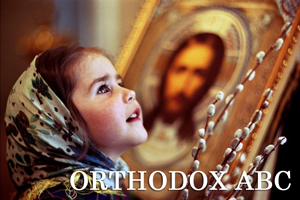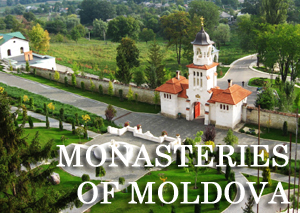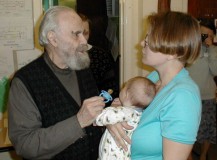
When we hear Christ mentioning these Commandments — where are we? Who of us can say that he was faithful to every word of this short list that indicate that without which we cannot live? Where do we stand?
Now behold, one came and said to Him, “Good Teacher, what good thing shall I do that I may have eternal life?” So He said to him, “Why do you call Me good? No one is good but One, that is, God. But if you want to enter into life, keep the commandments.”He said to Him, “Which ones?” Jesus said, “‘You shall not murder,’ ‘You shall not commit adultery,’ ‘You shall not steal,’ ‘You shall not bear false witness,’ ‘Honor your father and your mother,’ and, ‘You shall love your neighbor as yourself.’ “The young man said to Him, “All these things I have kept from my youth. What do I still lack?” Jesus said to him, “If you want to be perfect, go, sell what you have and give to the poor, and you will have treasure in heaven; and come, follow Me.” But when the young man heard that saying, he went away sorrowful, for he had great possessions. Then Jesus said to His disciples, “Assuredly, I say to you that it is hard for a rich man to enter the kingdom of heaven. And again I say to you, it is easier for a camel to go through the eye of a needle than for a rich man to enter the kingdom of God. When His disciples heard it, they were greatly astonished, saying, “Who then can be saved?” But Jesus looked at them and said to them, “With men this is impossible, but with God all things are possible.” (Matthew 19:16-26)
It is not only awesome, at times it is frightening to preach the Word of God, because the Lord said “By thy words thou shah be judged”. Judged, because if you proclaim God’s truth and remain idle and not the doer of what the Lord has commanded, and what you know well enough to proclaim to others — then, how shall you stand before the judgement of God? This does not apply only to the priest, but to every Christian who is called to be a witness, an apostle, one that brings God’s word to the people who are in darkness or twilight, who need divine light, and truth and life.
To-day’s Gospel challenges us all so sharply. It begins with words that maybe interpreted in more than one way: “Good Lord — what shall I do to have eternal life?” And the Lord answers, “Why do you call Me ‘good’? Good is only God”. He does not say, “You are wrong”. He does not deny His right to be called good as God is good; and thereby, to those who have ears to hear, those who have a heart capable of perceiving the surpassing goodness of the Lord Jesus, surpassing all human goodness, all human beauty and truth — it is a testimony: Yes, you are speaking to your God, and it is your God that is to answer your question. ….
And then Christ gives us two indications. The one is — if you wish to have eternal life, keep the Commandments. The Commandments of God are not only rules of behaviour (although, of course they are such), but as one of the Psalms puts it, should be in our inmost hearts. It should be from the depths of our heart that we accomplish the Commandments: not because we are commanded from outside, but because they have reached us with the ring of truth; not because God has spoken, but because with all our being we have answered “Amen!” This is true, this is life, this is the way into eternal life.
When we hear Christ mentioning these Commandments — where are we? Who of us can say that he was faithful to every word of this short list that indicate that without which we cannot live? Where do we stand? I, who am preaching, you who are hearing, because it is as responsible to hear as it is to speak. How often do we think — as this young man, and with how little reason — that we want perfection. We want perfection without having first trod the road of the Commandments.
But Christ says to us quite clearly: “If you want perfection — give all you possess”. It is not only material things which we can give: every one of us has treasures hoarded in his mind and heart, in his soul, things which are more important to him than anything material, that is his wealth. Each of us should turn inward and ask himself, “What is there which is my peculiar treasure? What are those things which I will not give away even for life eternal, for God?”.
We do not put things in such a crude manner, but we hug those things which are so precious to us, and still we hope that we will enter the Kingdom of God, we will reach perfection, we will become in all fullness what we are called to be, the kind of persons of whom God dreamed when He created us — and it is not true.
In the Book of Revelation there is a passage that says, “I have only one thing against you — you have forgotten your first love”. And this first love, indeed, for each of us, is the Living God, Whom we call in so many ways: we may call Him ‘Life’, we may call Him ‘Fulfillment’, we may call Him ‘Happiness’, we may call Him by all the names that mean that we should reach the fullness of our being. At times we know that only in God it is possible, at times we imagine that we can outgrow ourselves — all the same, this is our first love: to become as great as God has dreamed us, willed us.
And we do not follow the Commandments because we think that we can achieve it in a simpler manner; and we do not give away all we have, that is: the only thing we are not prepared to give away, in a hope that God will accept us, and our burden.
Let us reflect on this story. This is not even a parable, it is something that has happened to a young man. It happens to all of us when God says, “Have you been faithful to the way of life which I have described to you in terms of commandments, outlined in these terms as one can outline a road by milestones? Do you want to attain fullness — start at that point”. And if you are aware of having been faithful in these things, then ask yourself the further question: what is the treasure which I will not give away, even for eternal life?
The young man heard the words of Christ, and went away sad. He had earthly possessions, but we have so many possessions which are not material and which are our burden, our fetters.
And yet, there is in this story one thing that can give us so much hope; Christ did not condemn this young man; Christ let him go without a word of reproach, because what He had said was like seed sown into the mind and heart of this young man. He let him go wounded at the heart, puzzled in his mind, called to bestir himself by an act of heroic will and surrender, let go of himself, as Christ said, give everything away and follow Him. Where to? Along the road of human life on one hand, on the other hand — into the fullness of life eternal.
When Christ says to us “Follow Me”, He does not call us to walk a frightening, dark road; He says, “I have trodden all this road, I know every meander of it — you can safely follow! I am like the good shepherd that walks in front of his sheep, meeting all dangers himself, so that the sheep may be safe”.
We all will go home like the young man, perhaps saddened, that neither are we keeping the Commandments, nor are we able to give away our most precious treasure: but remember — we will not go condemned, we will have been faced with an ultimate choice, and as long as we can struggle on earth — there is time.
But let us not be beguiled by the length of time: time flies, time goes — let it not be too late, let us turn to life, let us become all we are capable of being.
The answer to to-day’s Gospel is so clear — “Who then can be saved?” — To man it is not possible by our own strength; but to God, all things are possible”. That is our hope: God with us, and nothing is too much for us. Amen.
 Memorial house of romanian elder Sofian Boghiu Consecrated in his native Village
Memorial house of romanian elder Sofian Boghiu Consecrated in his native Village 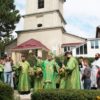 On the 14th Sunday after Pentecost, His Eminence Metropolitan Vladimir celebrated the Divine Liturgy in the St. Nicolas Monastery, Dobrusa village, Soldanesti region
On the 14th Sunday after Pentecost, His Eminence Metropolitan Vladimir celebrated the Divine Liturgy in the St. Nicolas Monastery, Dobrusa village, Soldanesti region  Inauguration of the volume of articles presented at the National Scientific Conference “The Orthodox Church and the State: Faith and Knowledge”
Inauguration of the volume of articles presented at the National Scientific Conference “The Orthodox Church and the State: Faith and Knowledge” 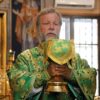 The 12th Sunday after Pentecost – kindness in God changes the world we live in
The 12th Sunday after Pentecost – kindness in God changes the world we live in  The 11th Sunday after Pentecost – loving our God and our neighbor
The 11th Sunday after Pentecost – loving our God and our neighbor  The Transfiguration of the Lord, celebrated in the Nativity of the Lord Cathedral in Chisinau
The Transfiguration of the Lord, celebrated in the Nativity of the Lord Cathedral in Chisinau  His Eminence Metropolitan Vladimir celebrates 65th anniversary
His Eminence Metropolitan Vladimir celebrates 65th anniversary  Divine Service at the St. Theodore of Tyre Monastery (Ciuflea) in Chisinau, and congratulation of Archimandrite Nicolae (Rosca), the Monastery’s confessor-administrator, on the 50th anniversary.
Divine Service at the St. Theodore of Tyre Monastery (Ciuflea) in Chisinau, and congratulation of Archimandrite Nicolae (Rosca), the Monastery’s confessor-administrator, on the 50th anniversary.  The Tenth Sunday after Pentecost: Divine Liturgy in the Nativity of the Lord Cathedral in Chisinau
The Tenth Sunday after Pentecost: Divine Liturgy in the Nativity of the Lord Cathedral in Chisinau 
